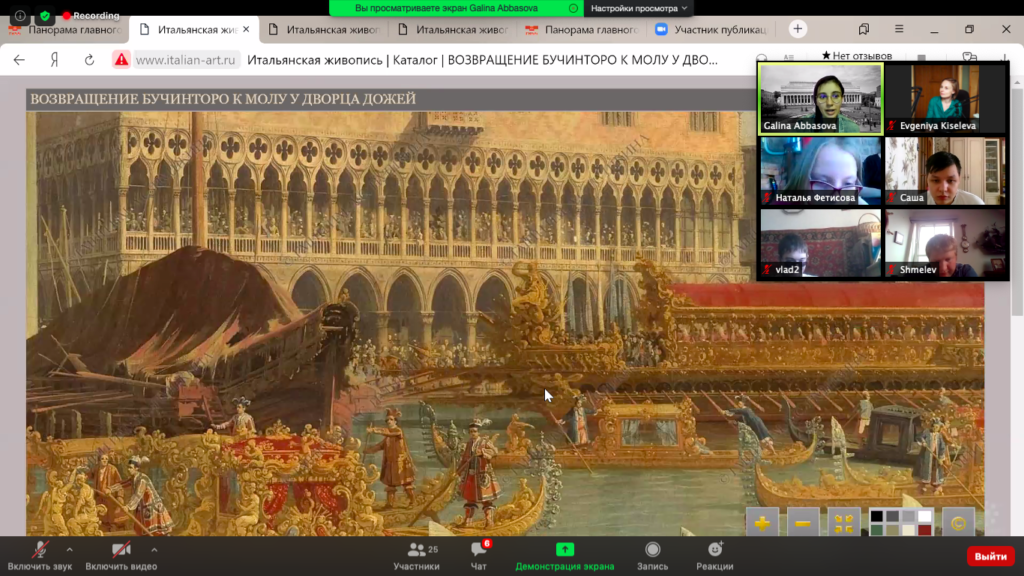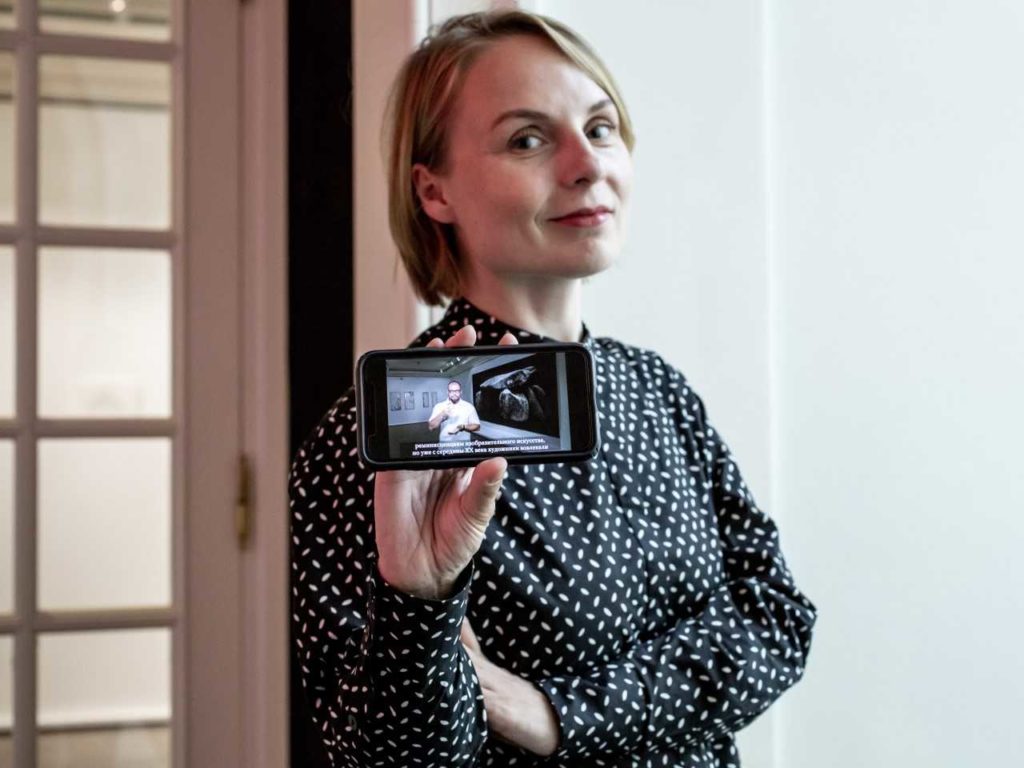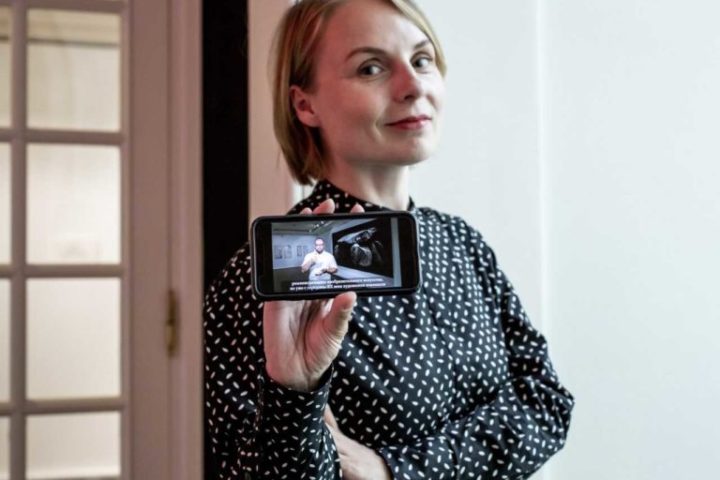
Evgeniya Kiseleva
Head of Access and Inclusion Department of the Pushkin State Museum of Fine Arts
Museums have no borders,
they have a network
July 1, 2020
Keywords: Communications, Digital Accessibility, Inclusion, Visitor Experience, Museology
The lockdown situation in which museum staff and visitors worldwide are finding themselves, brought about by the COVID-19 pandemic, can be referred to as reverse inclusion. The pandemic has forced museum professionals to experience what many people with social and communication challenges feel on a daily basis: that the world is limited to one’s apartment and online communication. At the Pushkin State Museum of Fine Arts in Moscow, preserving emotional contact in spite of the required social distancing, became a priority.
Implementing digital measures to overcome social distancing
The Pushkin State Museum of Fine Arts was closed as part of quarantine measures on 17 March 2020. From the very first day, thanks to Virtual Reality, Zoom tours, Facebook lectures, podcasts, live-broadcastings and social media flashmobs the museum ensured the current exhibitions (‘From Dürer to Matisse’, ‘Tattoo’ and ‘Svyatoslav Richter. In the Circle of Friends,’ among others) and the permanent exhibition remained accessible. Free online meetings with curators, restoration artists and custodians also gave online-visitors a unique behind-the-scenes view of life at the Pushkin State Museum of Fine Arts. These projects not only attracted art lovers and regular museum visitors but also gathered new audiences who had previously lacked the time to engage with art.
During the first six weeks of lockdown, inbound traffic to the Pushkin State Museum of Fine Arts’ main website and satellite web pages grew by 65%, while the duration and depth of page views increased by 38%. Over this period (17 March – 23 April 2020), virtual tours arranged by the museum were attended by 150,000 visitors, an increase of 1521 % from pre-lockdown times, according to Google Analytics.
Support to online users
At the Pushkin State Museum of Fine Arts, the Access and Inclusion Department, along with the IT (Information Technology) Department decided to hold special free webinars during the first weeks of lockdown for teachers, parents, tutors and all interested persons, to show them how to navigate the museum’s media and Virtual Reality resources. The intention was to provide them with access to the scope of information they needed. These online meetings were organised without additional funding beyond the museum’s own resources.
Developing accessibility and health care through digitisation
During lockdown, the engagement of visitors with disabilities also greatly increased at Pushkin. The Accessible Museum programme – which we developed in 2016 – gives us the opportunity to organise regular training sessions for guides and administrators on how to work with visitors with Autism Spectrum Disorder (ASD) and other sensitive audiences. During the quarantine period, this programme continued online, and the results of this switch to a virtual platform proved revelatory. Tours for children and teenagers with ASD arranged via Zoom demonstrated that the interactive online format, which provided options to comment, draw on the screen and ask questions or, on the other hand, to hide one’s face and observe from the sidelines, contributed to a calm and positive art appreciation experience. These options, unique to the online environment, are especially valuable for individuals with developmental disorders who can experience emotional stress during museum visits as a result of the direct communication and sensory overload. Online visits on an interactive platform are an ideal medium for studying information at one’s own pace. Although visitors with ASD often fail to respond to expressions of emotion such as a smile, they do greatly appreciate the enthusiasm of museum guides.

According to these feedback received via email and comments on social media, emotional contact with our guides and fellow observers in the museum’s online space was beneficial for all visitors in overcoming the feeling of isolation. But I would venture to guess that the experience was particularly important for those who have tried long and hard to overcome a closed-off existence.
During the pandemic, the Pushkin Museum also took the opportunity to reach out to its hearing impaired visitors. Guides with hearing impairments presented a series of videos with fragments of the most popular tours presented in Russian sign language.
For instance, we translated the Gods and Heroes of Ancient Greece online series of interactive tours into Russian sign language. These tours are tailored for families, thus providing a shared experience that fosters social and family bonds.

Post-pandemic, the Pushkin State Museum of Fine Arts plans to continue exploring these new approaches on different levels – visitor experience (including online) and exhibition practice. If this crisis teaches us to better understand the experience of visitors with sensory and communication challenges, it could contribute to significant socio-cultural transformation.
References and resources
The Pushkin Museum of Fine Arts
Pushkin Museum for All, series of videos [in Russian]:
Video n. 1 , Video n. 2 , Video n. 3 , Video n. 4 , Video n. 5
Link to the virtual tours organised by the Pushkin Museum
Experiencing the virtual tours organised by the Pushkin Museum
Opinions expressed in the article do not commit ICOM in any way and are the responsibility of its author.
To participate in our newest ICOM Voices call for contributions, click here.
